
views
Standing up for Yourself
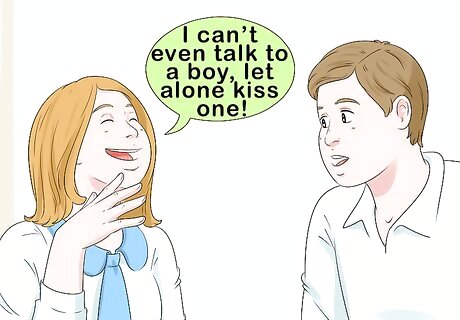
Deflect with humor when individuals tease or taunt you, if you can. Turn the situation into a joke instead of denying the rumor. Refusing the comment may egg on your offender. Humor often makes people realize the rumor is not true, based on your carefree attitude. If Billy says something like, “Karen told me you made out with Russell,” respond with something like, “I can’t even talk to a boy, let alone kiss one!”
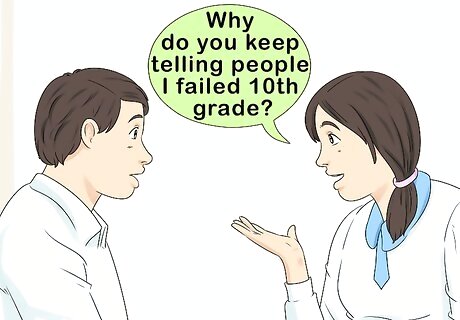
Ask to talk about the situation next time someone starts drama. You can approach the drama-spreader and kindly ask if you can talk about the rumors, or you can ask after they tease you next. Say something like, "Hey, Tommy. Why do you keep telling people I failed 10th grade?" It is better to discuss things rather than letting the drama fester. Oftentimes it doesn’t go away, it only gets worse. Be confident in yourself when you ask. Drama queens and kings are less likely to mess with you if you are confident in yourself.
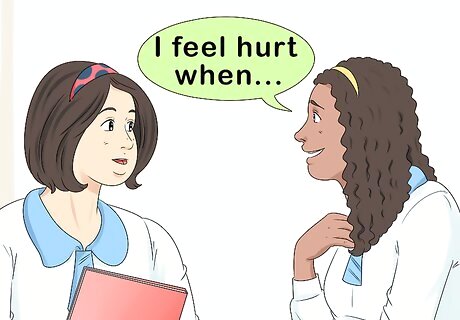
Use “I” statements to discuss the issue when drama persists. When discussing drama, be clear and straightforward with everyone involved. Explain your feelings about the rumors or others talking behind your back with sentences starting with “I.” Your statement doesn't need to strive for niceness. You are trying to clearly explain your side of the problem. Say something like, “John, I feel hurt when you tell people I smell bad.” or “I feel angry when you tell people I kissed Greg.”
Reevaluating Relationships

Reconsider any unhealthy friendships. Think about your friends, and make a note of anyone who makes you feel stressed or unhappy more than they make you feel positive. Take inventory of your true friends and those who only like to gossip.

Spend less time with dramatic people, if you still want to be friends. You are in control of how much time you spend with each of your friends. If you know someone is dramatic, you can choose to spend less time with them. Choose specific activities to do, rather than having free time to gossip. You can choose to only hang out with them on the weekends rather than during the week. Maybe you choose to only spend time with them around other friends.
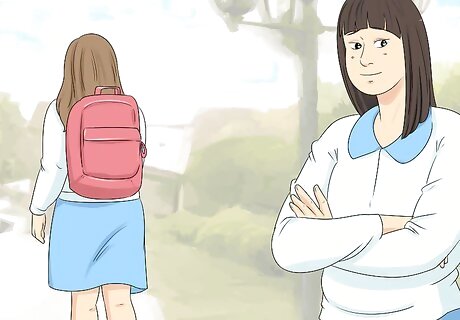
Walk away from the friendship, if it is for the best. If the person breeding drama is unwilling to apologize or change after discussing the situation, they probably aren’t a friend you want to have at all. Know you have the right to choose your friends. You don’t have to be friends with someone, even if they want to be your friend. Politely say something like, "I'm sorry, Jackie, but I can't be friends with you. I am really hurt by your drama, and I'm not over it.”
Staying Out of Drama

Surround yourself with kind, genuine friends. Find friends with similar interests with you, like music, sports, or other hobbies. That way, you are building genuine, true friendships, rather than those built off of gossip.
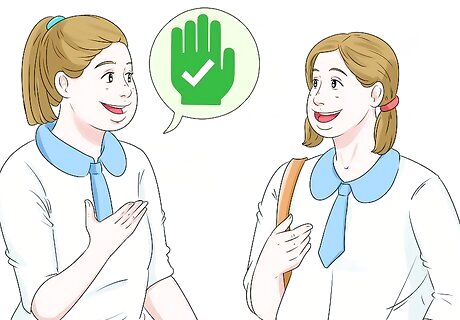
Treat your friends with compassion and honesty at all times. Be polite to your friends, and always treat them how you want to be treated. You are less likely to attract dramatic people into your life if you are nice. Also, if you are consistently kind, you will know that you are not fueling any drama in your life.

Focus on yourself instead of others to avoid getting caught in drama. Keep your attention on your schoolwork, extracurriculars, and after school activities, rather than your friends’ personal lives. When you base your reality off of your peers, it is easy to get caught up in their lives and problems. This boundary will help you filter out drama and maintain a stress-free school career.

Ignore the opinions of others rather than worrying what they think. If you are caught up in what other people think about you, you can easily fall into drama. Any time you have a thought about someone else’s opinion, simply ignore it. Don’t let their opinions influence your decisions. This may take some practice, but over time you can let go of your thoughts about what other people think.

Be mindful of what you say and who you say it to. It is easy for word to spread through school, so leave private conversations for your most trusted friends. This prevents miscommunication and avoids others twisting around your words. For example, don’t tell the girl whose locker is next to yours that you don’t like John. That will only give her something to start telling others about.
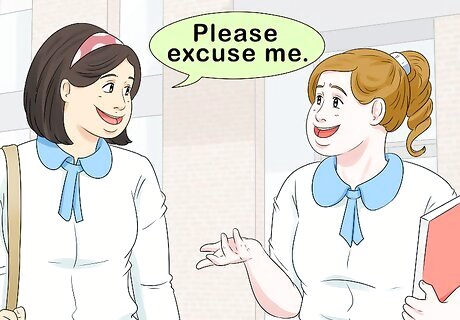
Stay out of clique-y conversations, rather than getting involved. Try not to encourage the complaints of your friends. Many dramatic people want to share their feelings with friends, and it’s easy to get caught up in a pity party. Be polite, but remove yourself from their drama. If a friend comes to you upset about getting grounded again, you can limit a window of time to chat about it, but then end the conversation. Try talking about something else or excusing yourself.
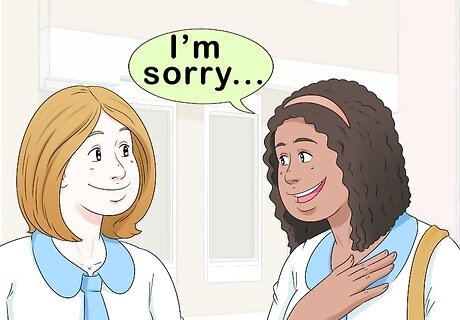
Apologize for any drama you may have contributed. Consider if you have played a role in the drama. Do you have drama with the band kids and the football team? Maybe you are part of the problem. Apologize to either the individual or group involved in the drama to diffuse any tension and wipe the slate clean. Think about any time you have said mean things about others or started rumors. It’s okay that it happened, but make sure you take responsibility and move on. You can say something like, “Hey, Anne. I’m sorry we got into that fight last week. I didn’t mean to hurt your feelings.”
Seeking Additional Help
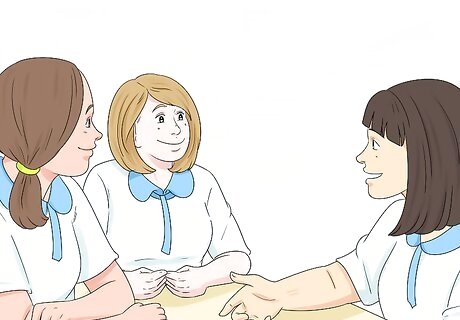
Recruit your friends for backup by informing them of the issue. Tell your pals about your problem. Mention how long the drama has lasted, who is involved, and what you think started it. They can offer a buffer between you and those involved, and they can help cheer you up. Say something like, “Hey Jared, Melissa keeps saying mean things about me to Kelsey and Veronica. I’ve tried asking Melissa to work, but she keeps yapping. Can you mention it to her next time you hang out?”

Tell your parents about your drama for help and support. If the drama isn’t resolved with a simple apology, it is a good idea to get Mom and Dad involved. Your parents can offer tips or suggestions, as well as support and comfort. Say something like, “Hey mom, kids at school keep talking about me behind my back. How can I get them to stop?”
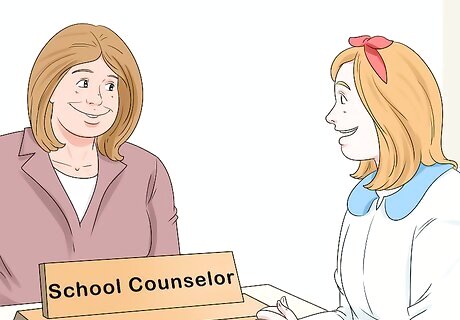
Ask your teachers or school counselors for help if the drama persists. Your school officials are there to help you, so let them know of any issue that continues to be a problem. You can say something like, “Hi, Ms. Wolfe. Other students keep pestering me about my new haircut. They are spreading mean rumors. Can you help?” Your teachers can watch for any issues during class. Your guidance counselor can set up a meeting between you and the other people involved. You can talk about the issue openly in a safe environment and reach a conclusion together.



















Comments
0 comment